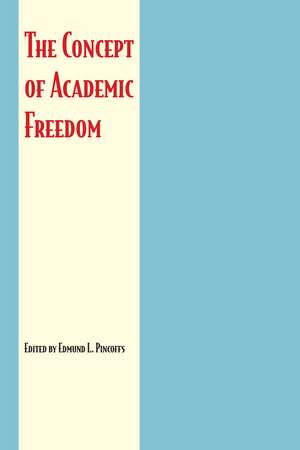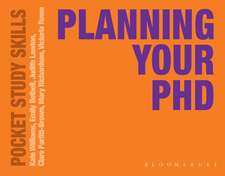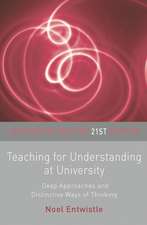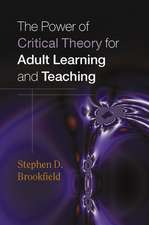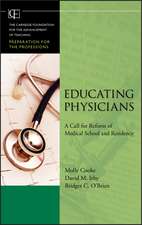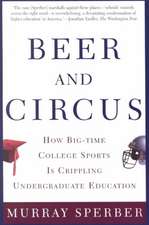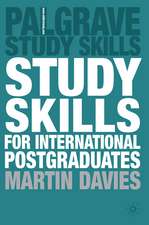The Concept of Academic Freedom
Editat de Edmund L. Pincoffsen Limba Engleză Paperback – feb 1975
Nearly all the contemporary writing on academic freedom consists of attack or defense. The Concept of Academic Freedom is the first book to deal exclusively with fundamental conceptual issues underlying the battle. In the discussion of these issues, certain philosophical positions crystallize: radical versus liberal conceptions of the status and function of university teachers, specific versus general theories of academic freedom, consequential versus nonconsequential theories of justification. Partisans (and enemies) of academic freedom would do well to decide on which side of these divisions they stand, or how they would mediate between sides. Otherwise many questions will remain unclear: What is under discussion—a special right peculiar to academics or a general right that is especially important to academics? Is justification of that right possible? Can the right be derived from other rights, or from the theory of justice or of democratic society? Or is the argument for academic freedom one that more properly turns on the consequences for society as a whole if that freedom is not protected?
The essays in this book explore these and other problems concerning the defense of academic freedom by radicals, the justification for disruption on campus, and the control of research.
Contributors to the volume include Hugo Adam Bedau, Bertram H. Davis, Milton Fisk, Graham Hughes, Alan Pasch, Hardy E. Jones, Alexander Ritchie, Amelie Oksenberg Rorty, Rolf Sartorius, T. M. Scanlon, Richard Schmitt, John R. Searle, Judith Jarvis Thomson, and William Van Alstyne. All are outstanding in their fields. Many have had practical experience in the legal profession or with the American Association of University Professors on the issue of academic freedom.
Preț: 231.16 lei
Nou
Puncte Express: 347
Preț estimativ în valută:
44.27€ • 45.17$ • 37.25£
44.27€ • 45.17$ • 37.25£
Carte tipărită la comandă
Livrare economică 26 februarie-12 martie
Preluare comenzi: 021 569.72.76
Specificații
ISBN-13: 9780292766365
ISBN-10: 029276636X
Pagini: 296
Dimensiuni: 152 x 229 x 21 mm
Greutate: 0.45 kg
Editura: University of Texas Press
Colecția University of Texas Press
ISBN-10: 029276636X
Pagini: 296
Dimensiuni: 152 x 229 x 21 mm
Greutate: 0.45 kg
Editura: University of Texas Press
Colecția University of Texas Press
Notă biografică
Edmund L. Pincoffs (1919–1991) was Professor of Philosophy at the University of Texas at Austin.
Cuprins
- Introduction (Edmund L. Pincoffs)
- Part One
- 1. Academic Freedom in Class Society (Milton Fisk)
- 2. Academic Freedom, Academic Neutrality, and the Social System (Bertram H. Davis)
- 3. Academic Freedom as a Moral Right (Hardy E. Jones)
- 4. Comments on Hardy Jones and Bertram Davis (Milton Fisk)
- Part Two
- 5. The Specific Theory of Academic Freedom and the General Issue of Civil Liberty (William Van Alstyne)
- 6. Two Concepts of Academic Freedom (John R. Searle)
- 7. Dilemmas of Academic and Intellectual Freedom (Amélie Oksenberg Rorty)
- 8. Academic Freedom: The Future of a Confusion (Richard Schmitt)
- 9. Reply to Comments (William Van Alstyne)
- Part Three
- 10. Tenure and Academic Freedom (Rolf Sartorius)
- 11. Tenure and Academic Freedom (Alexander Ritchie)
- 12. Tenure and Academic Freedom (Graham Hughes)
- 13. Some Comments on Sartorius’s Paper on Tenure (Amélie Oksenberg Rorty)
- 14. Tenure, Academic Freedom, and the Nature of the University (Rolf Sartorius)
- Part Four
- 15. Free Speech, the Right to Listen, and Disruptive Interference (Hugo Adam Bedau)
- 16. Comments on Bedau’s “Free Speech, the Right to Listen, and Disruptive Interference” (Alan Pasch)
- 17. Reply to Alan Pasch (Hugo Adam Bedau)
- 18. Comments on Bedau’s Reply (Alan Pasch)
- Part Five
- 19. Academic Freedom and the Control of Research (T. M. Scanlon)
- 20. Academic Freedom and Research (Judith Jarvis Thomson)
- Appendix: A Proposed Statement on Academic Freedom (Judith Jarvis Thomson)
- Bibliography: Some Suggestions for Further Reading
- Index
Descriere
Essays on the conceptual issues underlying the battle for academic freedom.
